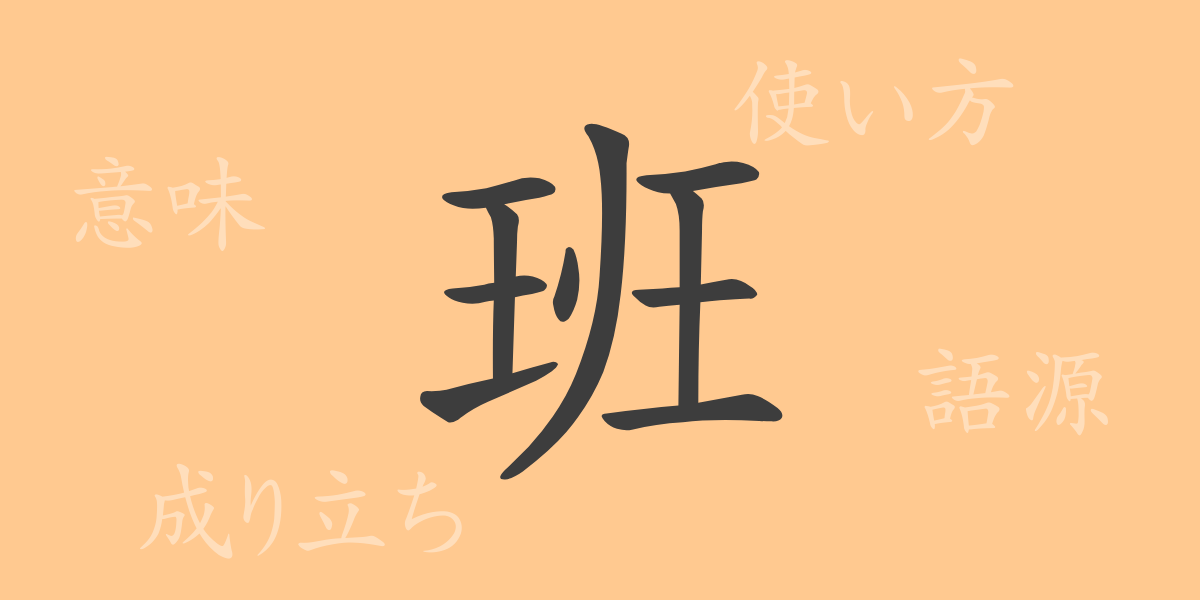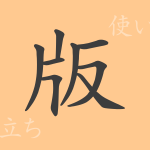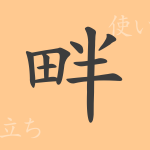In the rich tapestry of Japanese character culture, each kanji holds a unique history and significance. “班” (ハン) is one such commonly used kanji in our daily lives, serving varied purposes. This article will delve into the origins, meanings, and contemporary uses of “班”, along with idioms and phrases associated with it, providing a comprehensive overview of its significance.
Origins of 班 (ハン)
The kanji “班” originated in ancient China during the evolution of characters. Initially, there was the character “斑” (はん, meaning spots or mottled patterns), and “班” emerged as its variant. Over time, “班” came to mean dividing these spots, which metaphorically extended to dividing people or objects, thus coming to signify groups or squads, particularly in military contexts.
Meaning and Usage of 班 (ハン)
In modern Japanese, “班” primarily denotes ‘a small group organized for a specific task or purpose’. It is widely used to describe subgroups within a class at school or project teams at work. It can also refer to groups distinguished by specific skills or expertise.
Pronunciation, Stroke Count, and Radical of 班 (ハン)
Detailed information about the kanji “班” is as follows:
- Pronunciation: The on-reading is “ハン”, with no specific kun-reading.
- Stroke Count: A total of 12 strokes.
- Radical: The radical is 玉 (たま, ぎょくへん), representing ‘jade’.
Phrases and Idioms Using 班 (ハン) and Their Meanings
There are several idioms and phrases that include “班”. For example, “班長” (はんちょう) refers to the leader of a group or squad, “分班” (ぶんはん) means dividing a larger group into smaller squads, and “班目” (はんめ) indicates the order or position within a squad. These terms are typically used to denote roles and order within a group.
Summary on 班 (ハン)
The kanji “班” serves as a versatile character symbolizing groups and teamwork, frequently encountered in various aspects of life. Its historical depth, from its origins to modern applications, exemplifies its symbolic representation of people coming together to cooperate. Understanding the role of “班” in Japanese schools, workplaces, and communities offers valuable insights into the Japanese language and its societal functions.

























